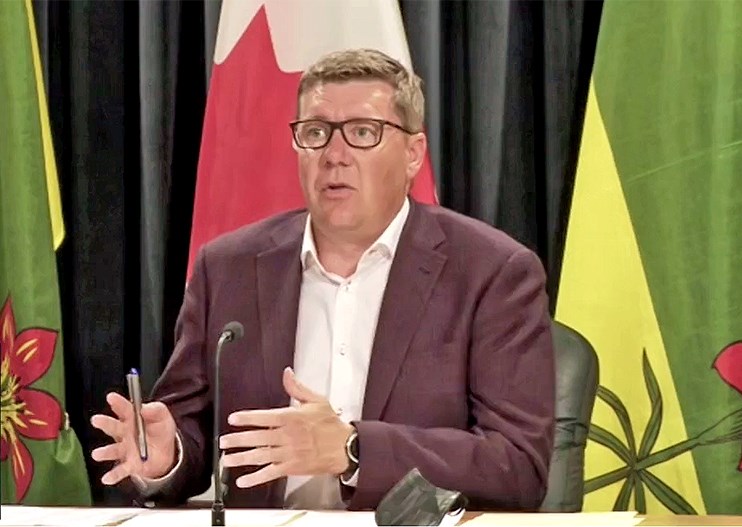As Saskatchewan approaches the end of pandemic-related emergency orders, Premier Scott Moe confirmed Tuesday that the provincial government is not looking at implementing vaccine passports moving forward.
The premier addressed calls to ask residents to provide proof of COVID-19 vaccination to attend large venues or events moving forward in a press conference on June 29.
Moe said that Saskatchewan is not considering the practice, due to potential violation of individual health information privacy.
“When we get past July 11, we’re going to be in an area where the emergency order will not be in place and we don’t have the ability then to demand that people show proof of vaccination to attend any large event here in the province,” said Moe.
Scott Livingstone, CEO of the Saskatchewan Health Authority, confirmed the decision, citing potential conflicts with HIPAA as vaccination status is considered personal information.
“[Within HIPAA], it’s not a requirement for an individual to provide that or other individuals to even ask for it, if it’s not related to the provision of health services,” said Livingstone.
A recent poll from Ipsos in May indicated that a large portion of Canadians support the idea of requiring proof of vaccination for certain events and locales, including visiting a seniors’ facility, travelling by air, or attending an indoor event venue or large public space.
Most provinces and territories have indicated they would work with federal officials to develop a cross-national policy, with Manitoba and Quebec already issuing immunization cards that once scanned, show an individual’s vaccination status.
Saskatchewan and Alberta remain the only provinces to reject the idea, with Premier Jason Kenney previously announcing that Alberta will not be participating in a vaccine passport program.
Moe says that it will fall to the federal government to implement such a regulation, placing the decision out of the hands of the province.
“There may be some requirements to show vaccination, but they won’t be in the provincial scope or sphere of influence, but in the federal or international sphere,” said Moe.
Vaccination requirements are already a travel requirement in some countries, added Moe, and it’s likely that COVID-19 could be added to that list of viruses of concern.
The Public Health Agency of Canada recently released data showing that since vaccines became widely available, approximately 95 per cent of positive COVID cases have been in unvaccinated individuals.
Moe said that with more than 40 per cent of Saskatchewan residents fully vaccinated with both does, the province is headed into a “two-vaccine summer” and officials are confident that transmission will continue to stay low.
“We continue to have faith in the people in this province, that they will do the right thing [and go for vaccination],” said Moe.
The SHA expects that an estimated 60 per cent of Saskatchewan will be fully vaccinated by the time pandemic orders lift in mid-July.



